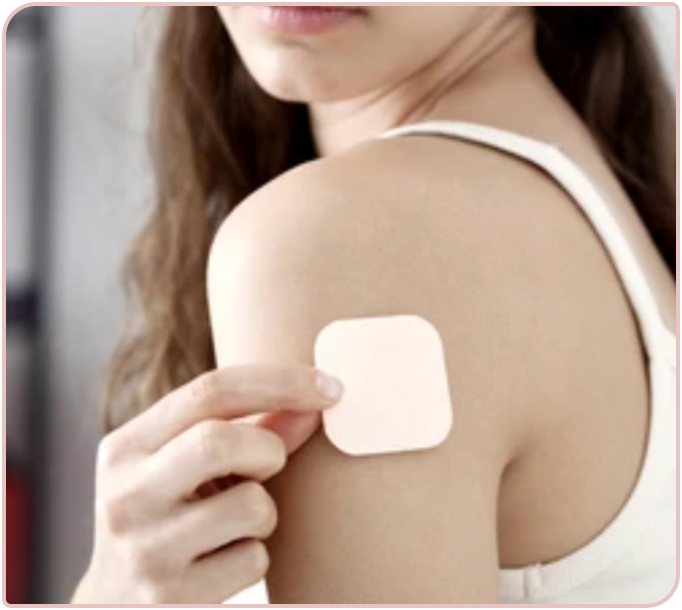The Contraceptive patch

The contraceptive patch is a small adhesive patch which goes onto your bare skin. Ideally the skin should not be very hairy, and you should not use the patch on your breasts.
It releases oestrogen and progestogen to prevent pregnancy.
These are the same hormones as the combined pill, and the patch works in the same way by preventing the release of an egg every month. (ovulation)
It also thickens cervical mucus, which makes it more difficult for sperm to move through the cervix and thins the lining of the womb, so a fertilised egg is much less likely to be able to implant itself.
It releases oestrogen and progestogen to prevent pregnancy.
These are the same hormones as the combined pill, and the patch works in the same way by preventing the release of an egg every month. (ovulation)
It also thickens cervical mucus, which makes it more difficult for sperm to move through the cervix and thins the lining of the womb, so a fertilised egg is much less likely to be able to implant itself.
The Contraceptive Patch
How Effective Is It?
99%
Perfect Use
91%
Typical Use
Pros
- Can make monthly bleeds regular, lighter, and less painful.
- The patch will still be fully effective even if you are sick (vomit) or have diarrhoea.
Cons
- May be visible to others and can cause some skin irritation.
- The patch can also raise your blood pressure, and some women report temporary side effects, such as headaches.
- The patch does not protect against STI’s (sexually transmitted infections) so you may need to use a condom as well.
(Perfect use means using the method correctly each time. Typical is when you do not always use it correctly)
Dr Wagner is highly qualified and has many years of experience, allowing her to offer first-class advice and treatment of the highest standard in her boutique practice in the heart of Basel.

